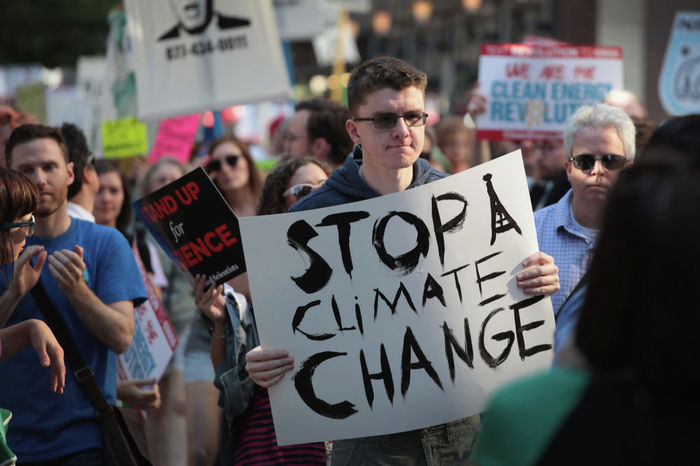Beyond divestment
In this first instalment of a 3-part series of articles for Varsity the Jesus College Climate Justice Campaign explains why conventional divestment policies fail to address the climate crisis.

£5.15 million. That’s over a million pounds more than the total tuition fees paid to Jesus College each year. It’s also the amount that the College currently invests in some of the global economy’s absolute worst-offending exploiters and polluters. In our new report, the Jesus College Climate Justice Campaign has found that the College invests more than £807,000 in major fossil fuel giants alone, including substantial investments in both BP and Shell. These investments are shocking enough. But they’re just the tip of the iceberg.
Our investigation into the College’s privately managed investments uncovered at least a further £4 million invested in other deeply unethical industries which are devastating our planetary life support systems and exploiting many of the world’s most vulnerable communities along the way. This includes companies with extensive, well documented records of human rights violations and exploitation of workers in their supply chain, like Samsung, Amazon and BAE systems, as well as a whole host of industries engaged in other processes driving climate breakdown, from biodiversity destruction to mass animal agriculture.
“Divestment in the name of sustainable and responsible investment principles therefore cannot ignore the catastrophic ecological and social harms associated with many of Jesus College’s non-fossil fuel holdings.”
We also uncovered substantial investments by Jesus College in major fossil fuel funders, ignoring the increasingly desperate pleas of scientists and frontline communities alike by pumping billions each year into new fossil fuel extraction projects. What is most concerning about these findings is the fact that conventional fossil fuel divestment policies would allow the vast majority of these investments to remain within Jesus College’s portfolio.
Fossil fuel companies are of course critical drivers of climate breakdown, with an enormous carbon footprint associated with their core business model. But to focus a divestment decision narrowly on the exclusion of these companies alone, as many other Colleges have done, is to let so many of the industries involved in accelerating ecological breakdown off the hook. We must go further. On the most basic level, to deal with a problem requires a full analysis of its scope. Divestment in the name of sustainable and responsible investment principles therefore cannot ignore the catastrophic ecological and social harms associated with many of Jesus College’s non-fossil fuel holdings.
Livestock farming, for instance, accounts for 14.5% of global greenhouse gas emissions - more than all transportation combined - and is a major driver of deforestation, biodiversity destruction and water contamination. Through just one of the 22 funds in its portfolio, Jesus College is currently investing £37,482.51 in major dairy distributor, Mengniu Dairy Company. When we know that greenhouse gas emissions from just 13 dairy farms equal those of the entire United Kingdom, we cannot afford to exclude companies such as Mengniu Dairy Company from a divestment decision. Indeed, under conventional divestment, Jesus College could sell all £807,000 of its investments in fossil fuel companies, but still maintain its £27,892.12 investment in JP Morgan, the world’s worst banker of fossil fuel projects between 2016 and 2021, injecting an eye-watering $316.735 billion into new fossil fuel extraction projects in this period.
With Jesus College in the process of developing a new Responsible Investment Policy, we are making this intervention to urge them not to make the mistake of reducing climate breakdown to one industry. ‘Responsible’ investment must involve cutting ties with all companies profiting off of climate catastrophe and human suffering.
“We are making this intervention to urge them not to make the mistake of reducing climate breakdown to one industry.”
Jesus College has rightly begun to recognise the violent histories of enslavement and colonialism out of which much of its current wealth was built. When we call for ‘climate justice’, it is because the climate crisis is intimately bound up with other crises of inequality and exploitation, reflecting enduring structures of inequality by wreaking havoc on the least responsible communities along lines of race, class and gender. As an institution with enormous wealth partially rooted in these histories - benefitting significantly from the benefaction of slave trader Tobias Rustat - Jesus College has a profound responsibility to frontline communities to put its money where its mouth is and act decisively against the allied forces of exploitation and planetary destruction that it is currently legitimising through its investments. We must understand reckoning with our colonial legacy not just as a matter of reflecting on our history, but also demanding that we urgently address the racialised effects of our current investment portfolio. Divestment is just the beginning of a much broader reckoning with our complicity in global systems of inequality and exploitation. It is not enough simply to divest from a far too narrowly defined set of big-name fossil fuel companies. All this does is remove the College from direct complicity with some of the worst drivers of the problem. In order for Jesus College to begin to make reparations for this complicity and become a positive actor in the fight for a more just and liveable world, much more is required. We need to actively invest in sustainable, community-based projects, going beyond the narrow lens of short-term profitability, viewing ecological and social harms as disqualifying factors in investment decisions, not uncomfortable realities you hope no one will mention.

Cambridge University Is divesting, now its faculties must cut all ties with the fossil fuel industry
Our new Responsible Investment Policy has the opportunity to live up to its name, succeeding where previous divestment announcements have failed. We can be a pioneer in justice-based, scientifically coherent climate action policies, helping to spur long overdue action in similar institutions across the world. Or we can continue to bankroll the problem, investing in fossil fuel’s major funders, and failing to engage in the human suffering that many of our non-fossil fuel investments line their pockets with. The choice is ours, and so are the consequences of that choice. Time is running out to act.
 News / Caius mourns its tree-mendous loss23 December 2025
News / Caius mourns its tree-mendous loss23 December 2025 Comment / Yes, I’m brown – but I have more important things to say22 December 2025
Comment / Yes, I’m brown – but I have more important things to say22 December 2025 News / Clare Hall spent over £500k opposing busway 24 December 2025
News / Clare Hall spent over £500k opposing busway 24 December 2025 Interviews / Politics, your own way: Tilly Middlehurst on speaking out21 December 2025
Interviews / Politics, your own way: Tilly Middlehurst on speaking out21 December 2025 News / King appoints Peterhouse chaplain to Westminster Abbey22 December 2025
News / King appoints Peterhouse chaplain to Westminster Abbey22 December 2025








